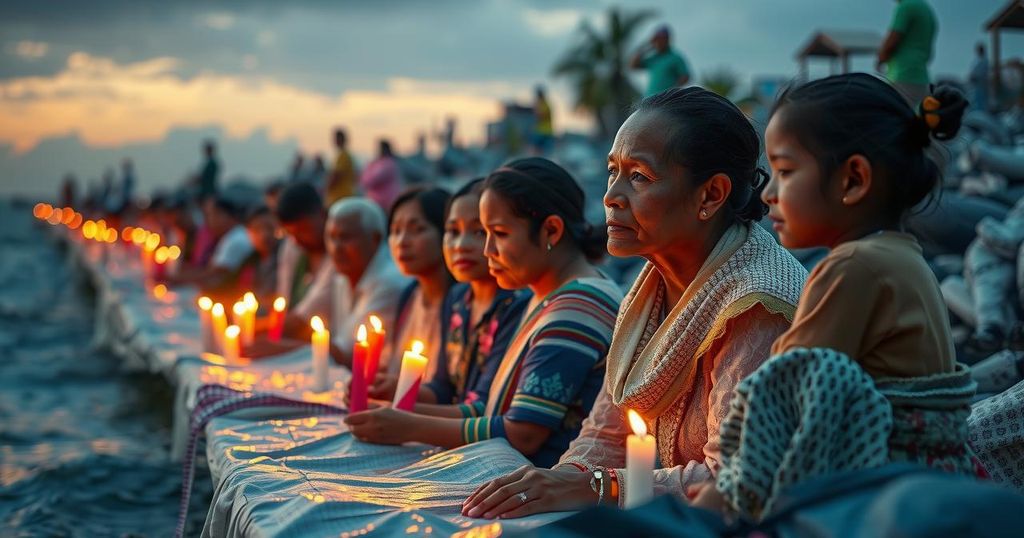20 Years After the Indian Ocean Tsunami: Remembering Lives Lost in the Affected Nations
A commemoration is taking place to mark the 20th anniversary of the Indian Ocean tsunami, where communities reflect on the lives lost in Indonesia, Thailand, Sri Lanka, and India. The disaster, caused by a significant undersea earthquake, resulted in an estimated 230,000 to 280,000 fatalities and spurred advancements in global disaster response strategies. Survivors emphasize the importance of memory and preparedness for future natural calamities.
Two decades have passed since the devastating Indian Ocean tsunami struck on December 26, 2004, leaving a lasting impact in countries such as Indonesia, Thailand, Sri Lanka, and India. Families and communities gathered to commemorate those who lost their lives in the disaster, reflecting on the profound sorrow and enduring loss that the tragedy induced. In ceremonies across the affected regions, memories of the departed were honored through prayers, tributes, and acts of remembrance, emphasizing the resilience of the survivors and their commitment to preserving the memory of loved ones.
The Indian Ocean tsunami was a result of a massive undersea earthquake off the coast of Sumatra, Indonesia, measuring 9.1 on the Richter scale. This catastrophic event triggered waves that reached heights of up to 100 feet, resulting in an estimated 230,000 to 280,000 fatalities across multiple nations. The disaster prompted immediate international humanitarian responses, leading to significant changes in early warning systems and disaster preparedness measures in the region.
As the 20th anniversary of the tragedy approached, many survivors expressed their continued grief and the necessity of memorializing the event to educate future generations about the perils of natural disasters. Various local authorities and community organizations organized memorial events, ensuring that the memories of the victims remain alive, serving as a poignant reminder of the fragility of life.
The ongoing remembrance of the 2004 tsunami serves not only to honor those who perished but also to promote awareness regarding disaster risk reduction. Communities worldwide emphasize the importance of preparedness and resilience in the face of potential calamities, hoping that collective efforts will mitigate the impacts of future disasters.
The Indian Ocean tsunami, which occurred on December 26, 2004, was one of the deadliest natural disasters in recorded history. Triggered by a massive undersea earthquake near Sumatra, Indonesia, the tsunami affected multiple countries, causing extensive loss of life and property. The event galvanized global humanitarian response efforts and led to significant developments in disaster preparedness and response strategies, particularly in coastal communities around the Indian Ocean. The 20th anniversary serves as an opportunity for reflection on the lessons learned and the ongoing journey of healing for those affected.
In conclusion, the 20th anniversary of the Indian Ocean tsunami is a solemn reminder of the lives lost and the resilience shown by survivors. Commemorative events across the affected nations offer an opportunity to reflect on the past while fostering a spirit of education and preparedness for future disasters. Remembering the victims and advocating for enhanced disaster management practices remain essential in ensuring that such a tragedy is never repeated.
Original Source: m.economictimes.com




Post Comment